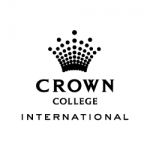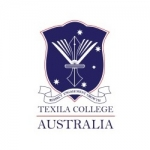Study in Portugal for Indian Students

Portugal is gaining popularity among international students, including Indians, for its affordable education, high-quality programs, and vibrant cultural experience. Known for its beautiful landscapes, friendly people, and sunny climate, Portugal offers excellent programs, especially in fields like business, technology, arts, and humanities. Universities like the University of Lisbon, the University of Porto, and NOVA University Lisbon are among the top-ranked institutions in Europe, attracting students from around the world.
Why Study in Portugal?
- Affordable Tuition Fees and Cost of Living: - Portugal offers comparatively low tuition fees and a reasonable cost of living compared to other European countries. Students can enjoy a high standard of living without the financial burden seen in other popular study destinations.
- Quality Education and Research Opportunities: Portuguese universities maintain high academic standards and have strong research programs. The country’s institutions excel in fields such as engineering, medicine, business, and the arts, providing students with top-tier academic and research opportunities.
- English-Taught Programs: Many universities in Portugal offer bachelor’s, master’s, and doctoral programs in English, especially in popular fields like business, economics, technology, and international relations.
- Cultural Experience: Portugal is known for its rich cultural heritage, historic sites, and vibrant lifestyle. Students have the opportunity to immerse themselves in a unique blend of European and Mediterranean cultures, with easy access to nearby European countries.
- Post-Graduation Work Opportunities: Portugal allows international students to stay and work after completing their studies. The country’s growing tech industry and demand for skilled professionals make it a promising place for graduates.
Eligibility Requirements for Indian Students
1. Academic Qualifications:
- Undergraduate Programs: Completion of 12th grade with a minimum of 55–65%, depending on the program and institution.
- Postgraduate Programs: A bachelor’s degree with a minimum of 55–70% from a recognized university is generally required.
- Ph.D. Programs: A master’s degree in a relevant field, along with a research proposal, is required for doctoral studies.
2. English Language Proficiency:
While many programs in Portugal are offered in English, proof of English language proficiency may be required:
- IELTS (International English Language Testing System): Minimum score of 6.0–6.5
- TOEFL (Test of English as a Foreign Language): Minimum score of 80–90
- PTE (Pearson Test of English): A score of around 56–65
Some universities may waive language requirements if prior education was in English.
3. Portuguese Language Skills (Optional):
- While not required for English-taught programs, learning basic Portuguese can be helpful for daily life, and some public university programs might require it for certain courses.
4. Visa Requirements:
Indian students need a Type D Study Visa to study in Portugal. Key requirements include:
- Acceptance Letter: Proof of admission from a Portuguese university
- Proof of Financial Support: Evidence of funds to cover tuition and living expenses (approximately €6,000 per year).
- Health Insurance: Mandatory for international students.
Applications can be submitted at the Portuguese consulate, and processing can take several weeks, so early application is recommended.
Application Process
1. Select a Program and University:
Research the programs and universities in Portugal that align with your career goals. The University of Lisbon, University of Porto, and NOVA University Lisbon are known for their strong international programs.
2. Prepare Required Documents:
Common application requirements include:
- Academic transcripts and certificates
- Proof of English proficiency (IELTS, TOEFL, etc.)
- Statement of Purpose (SOP)
- Letters of Recommendation (LORs)
- Curriculum Vitae (CV)
- Passport copy
- Portfolio (for art or design programs)
- Research proposal (for Ph.D. applicants)
3. Submit the Application:
For undergraduate programs, apply directly to the university or via the common application platform Candidaturas Online. For postgraduate programs, applications are generally submitted through the university’s official website.
4. Attend an Interview (if required):
Some programs may require an online interview or additional assessments as part of the selection process.
5. Receive Offer and Confirm Enrollment:
Upon acceptance, confirm your enrollment by paying a deposit, if required.
6. Apply for a Study Visa:
Once you have the acceptance letter, start the visa application process with the Portuguese embassy or consulate.
7. Arrange Accommodation and Travel:
After receiving your visa, plan for accommodation. Many universities offer oncampus housing options, or you may choose private rentals.
Cost of Studying and Living in Portugal

1. Tuition Fees:
- Undergraduate Programs: €1,000 to €5,000 per year for EU students, and €3,000 to €7,000 per year for non-EU students, including Indians.
- Master’s Programs: €3,000 to €8,000 per year, depending on the program and institution.
- Ph.D. Programs: €2,500 to €5,000 per year, though many programs offer funded positions or scholarships.
2. Living Expenses:
The cost of living in Portugal is relatively affordable, especially compared to other Western European countries. Monthly expenses generally range between €600 and €1,000, depending on the city:
- Accommodation: €300–€500
- Food: €150–€250
- Transportation: €35–€45 for a student pass


3. Scholarships:
- Portuguese Government Scholarships: Available for international students based on merit.
- University-Specific Scholarships: Many universities offer financial aid, scholarships, or tuition fee waivers for international students.
- Erasmus+ Scholarships: Some programs are eligible for Erasmus+ funding for exchange opportunities within Europe.

Post-Graduation Opportunities
1. Job Search Visa:
Portugal allows graduates from Portuguese universities to apply for a residence permit to search for employment for up to 1 year after graduation.
2. Employment Opportunities:
Portugal’s job market is growing in fields like technology, tourism, business, and renewable energy. Proficiency in Portuguese can improve job prospects, although many companies offer roles that require English.
3. Pathway to Permanent Residency:
After five years of continuous residence, students may apply for a permanent residence permit, which can lead to EU-wide opportunities.
University List

York Business Institute
New South Wales, Australia

Berkeley Business Institute
New South Wales, Australia

Crown College International
Victoria, Australia

Texila College Australia
Victoria, Australia

Melbourne City College Australia
Victoria, Australia

Conclusion
Portugal offers Indian students a unique blend of quality education, affordable living, and enriching cultural experiences. With internationally recognized universities, English-taught programs, and favorable post-study work opportunities, Portugal is becoming a popular study destination. By understanding the eligibility requirements, application process, and cost structure, Indian students can effectively plan their study journey in Portugal, gaining both a strong academic foundation and valuable international exposure.

